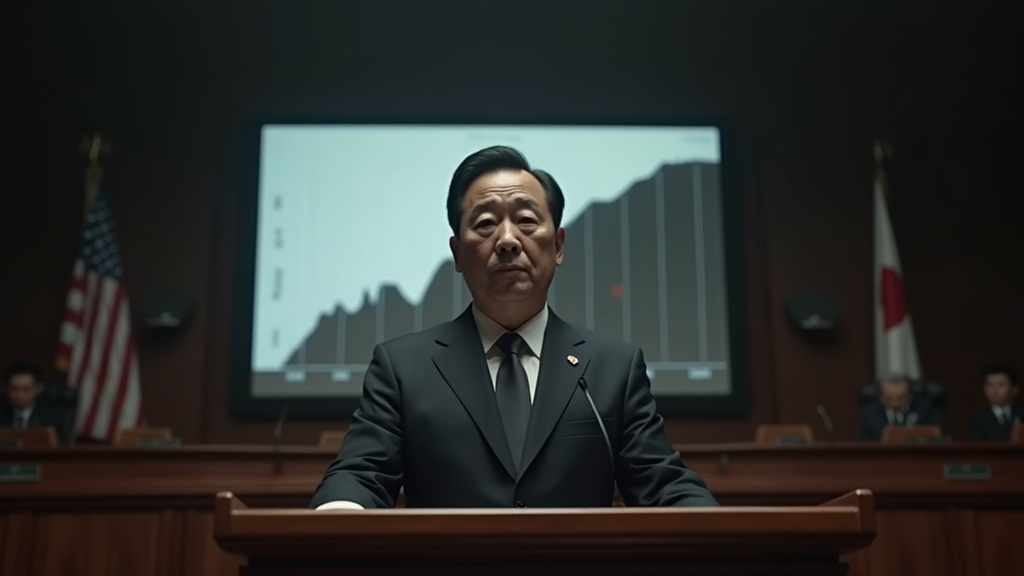Japan is confronting a severe population crisis, characterized by a rapidly aging and shrinking populace, coupled with a declining birth rate. This demographic reality necessitates a greater reliance on foreign labor to sustain its economy. However, this need is increasingly clashing with a surge in anti-foreigner sentiments, which are being actively leveraged by nationalist and populist politicians, creating a complex and potentially destabilizing political landscape.
The Deepening Demographic Chasm
Japan’s demographic trajectory is stark: the country has one of the world’s oldest populations and a fertility rate hovering around 1.3 children per woman, far below the level required for population stability. Projections indicate a significant contraction of the working-age population by 2050, leading to an estimated shortfall of 11 to 15 million workers by 2040. This impending labor crisis is already impacting critical sectors such as manufacturing, retail, agriculture, fishing, and healthcare. To mitigate these effects, Japan has seen a record increase in its foreign population, now exceeding 3.7 million people, comprising about 3% of the total population. The foreign workforce has more than doubled over the past decade, reaching 2.3 million, with experts estimating that Japan may require up to 6.7 million foreign workers by 2040 to meet its economic growth targets.
Echoes of Xenophobia and Misinformation
Despite the undeniable economic imperative for foreign labor, anti-foreigner sentiments are on the rise. These feelings are often rooted in economic anxieties, including stagnant wages, rising prices, and a general pessimism about the future. Social media and populist rhetoric play a significant role in amplifying these concerns, frequently disseminating misinformation. False narratives suggesting immigrants are driving up crime, overwhelming social services, or receiving preferential treatment have gained traction. This was vividly illustrated when protests erupted over a government cultural exchange program with African nations, fueled by social media claims that it was a clandestine plan for mass immigration rather than a short-term internship and investment initiative.
Politicians Capitalizing on Fear
Nationalist and populist figures have astutely tapped into this growing unease. Sohei Kamiya, leader of the Sanseito party, has championed a “Japanese First” platform, blending anti-globalism, anti-immigration, and anti-liberalism. This agenda, once confined to the political fringes, has gained broader traction, making significant gains in recent parliamentary elections. Sanseito’s message, which frames immigration as a threat to national identity and public safety, resonates with voters disillusioned by economic stagnation. Even within the ruling Liberal Democratic Party (LDP), candidates vying for prime minister have vowed to implement tougher measures on foreigners, with some politicians explicitly criticizing the growing foreign population, framing their stance as “common sense” rather than xenophobia. The political discourse has shifted, with immigration and cultural concerns becoming prominent issues in major political events.
The Government’s Tightrope Walk
The Japanese government finds itself in a precarious position. It acknowledges the urgent need for foreign workers to prevent economic paralysis but is simultaneously facing domestic political pressure to tighten immigration controls. While policies like the “Specified Skilled Worker” visa system have been introduced and expanded to attract foreign talent, their implementation has been criticized for insufficient support for integration and public education. The cancellation of programs like the JICA’s “Africa Hometown” scheme, due to misinformation-fueled backlash, exemplifies the challenges the government faces in balancing international cooperation with domestic sensitivities.
Economic Realities vs. Social Tensions
The ramifications of this growing anti-immigrant sentiment for Japan’s economic future are significant. Experts warn that a failure to adequately address the labor shortage through immigration could lead to economic decline, paralyzing key industries. While Japan is investing in automation and technology as partial solutions, these measures have limitations, particularly in sectors requiring human interaction. Furthermore, the nation’s perceived lack of diversity and potentially dwindling salaries could make it less attractive to the foreign workers it so desperately needs.
An Uncertain Path Forward
Japan stands at a critical juncture. The demographic crisis demands pragmatic solutions, including a robust acceptance of foreign labor. However, the rising tide of nationalist sentiment, amplified by political rhetoric and misinformation, presents a formidable obstacle. The nation must navigate a path that reconciles its economic necessities with its societal anxieties, fostering a more inclusive environment if it is to overcome its demographic challenges and secure a stable economic future. The ongoing political debates and public reactions to immigration will continue to shape the nation’s trajectory in the coming years, highlighting this as a trending topic in domestic news.





